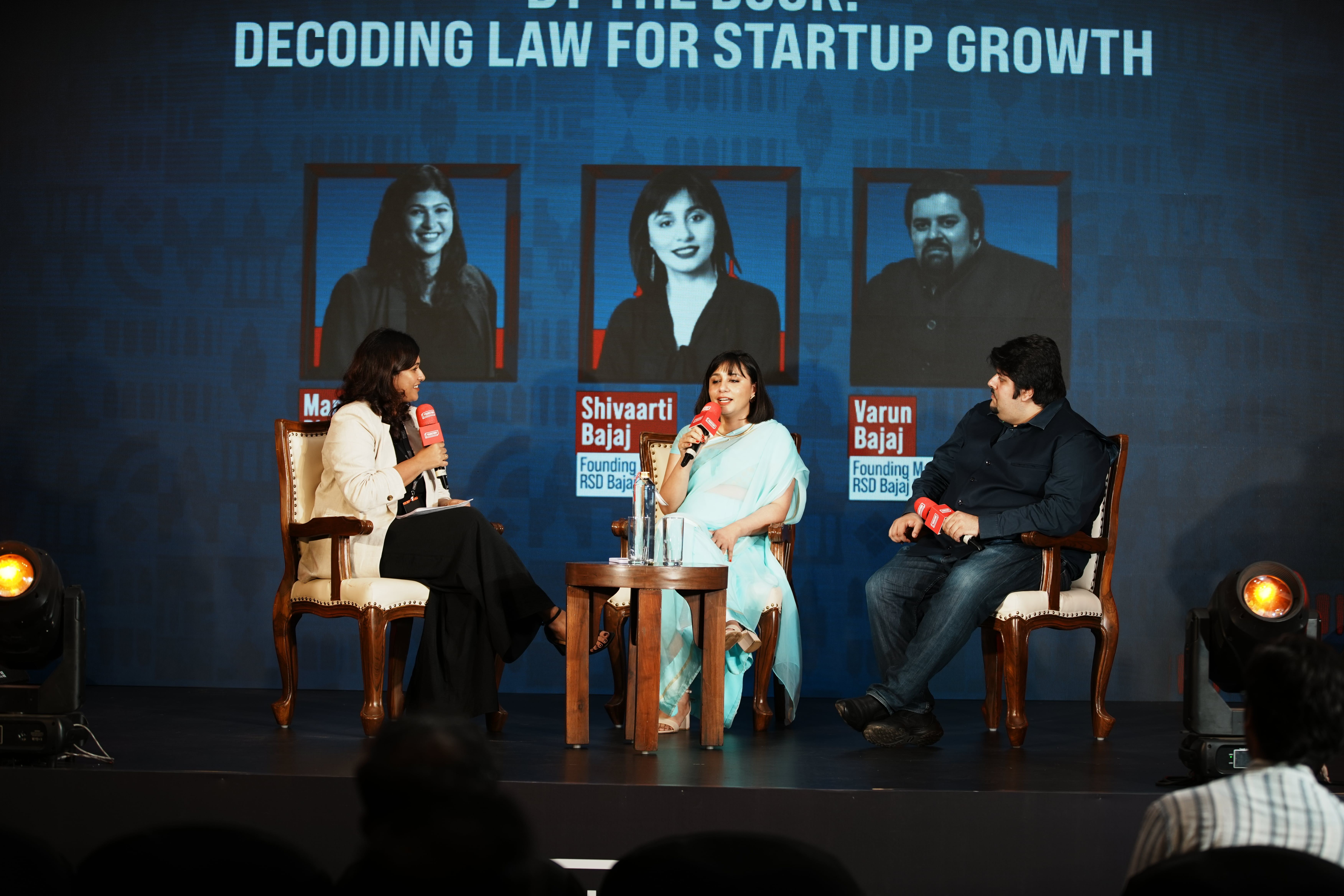Balance of power between founders, investors shifting: RSD Bajaj Global law firm founders
At TechSparks Mumbai 2024, Varun Bajaj and Shivaarti Bajaj of law firm RSD Bajaj Global said that post-COVID-19, startups have more pools from where they can raise capital.
There has been a significant shift in the Indian startup fundraising landscape since the pandemic, according to Varun Bajaj, Founding Managing Partner of RSD Bajaj Global Law Firm–a full-service law firm that specialises in startups and emerging businesses in the ‘new economy’ ie high-growth industries adapting to the changing technology.
“I would break it into pre-COVID-19 and post-COVID-19. The new economy was not mainstream pre-COVID-19,” Varun said at TechSparks Mumbai 2024, YourStory’s flagship startup-tech summit.
“The balance of power has always been in favour of investors in India. India is a capital-starved country. That’s why a lot of founders leave their legal rights to raise capital. Lots of entities and startups are chasing a small [amount of] capital,” he added.
This is in contrast to Silicon Valley where capital chases quality startups. However, since COVID-19 struck, Varun said he has observed a change in the balance of power between investors and founders.
“Earlier, the venture capital ecosystem was very small. Now…there are a lot of alternative investment firms coming in. A lot of money is flowing from global sources, and post-COVID-19, they realised the importance of digitisation,” he said, adding that there are now more pools from where startups can raise capital.
He also urged founders to leverage the “balance of power” with the help of timely legal advice.
Agreeing with him, Shivaarti Bajaj, Founding Managing Partner of RSD Bajaj Global LLP, said that despite the prevalent macroeconomic conditions, startups need to get their product-market-fit right and sometimes, while doing that, they tend to ignore the legalities.
“It would be good if they have good legal advisors on their boards from day zero. They say that if you’re penny-wise, you can save a lot of pounds,” she explained.
Shivaarti also talked about a few founders who came to the law firm to help them fix certain clauses after doing a couple of funding rounds and signing on the dotted line. “You could do prevention with a paracetamol but if it is at an advanced stage, you need an operation,” she quipped.
In terms of balancing the interests of founders and investors, Varun said that the former would “never go wrong” if they ensured operational control of the startup while giving the financial rights to the latter in exchange for funding.
“As a founder, your main concern is to run the show for a longer period of time. So, our test, which we have evolved over a period of time, is we tell founders to negotiate the operating control (aspect) but we also encourage them to give financial rights because you need to give something to get something. You have to balance the two,” he explained.
Emphasising the importance of involving legal experts in negotiating the contracts, he likened it to “a good investment” and “an insurance policy”, which would reap returns later in the future when their startups/assets grow bigger.
Shivaarti said startups should take legal advice even when they are starting small.
“If you are not compliant from day one, sooner or later, it is going to be a concern for everyone. Whether you’re a D2C (direct-to-consumer) brand, a technology company, or in services, the law is omnipresent in our lives, especially in the businesses of valuations, startups, and fundraising, because VCs (venture capitalists) are very particular about putting their money behind legally-compliant startups,” she added.
Edited by Kanishk Singh











